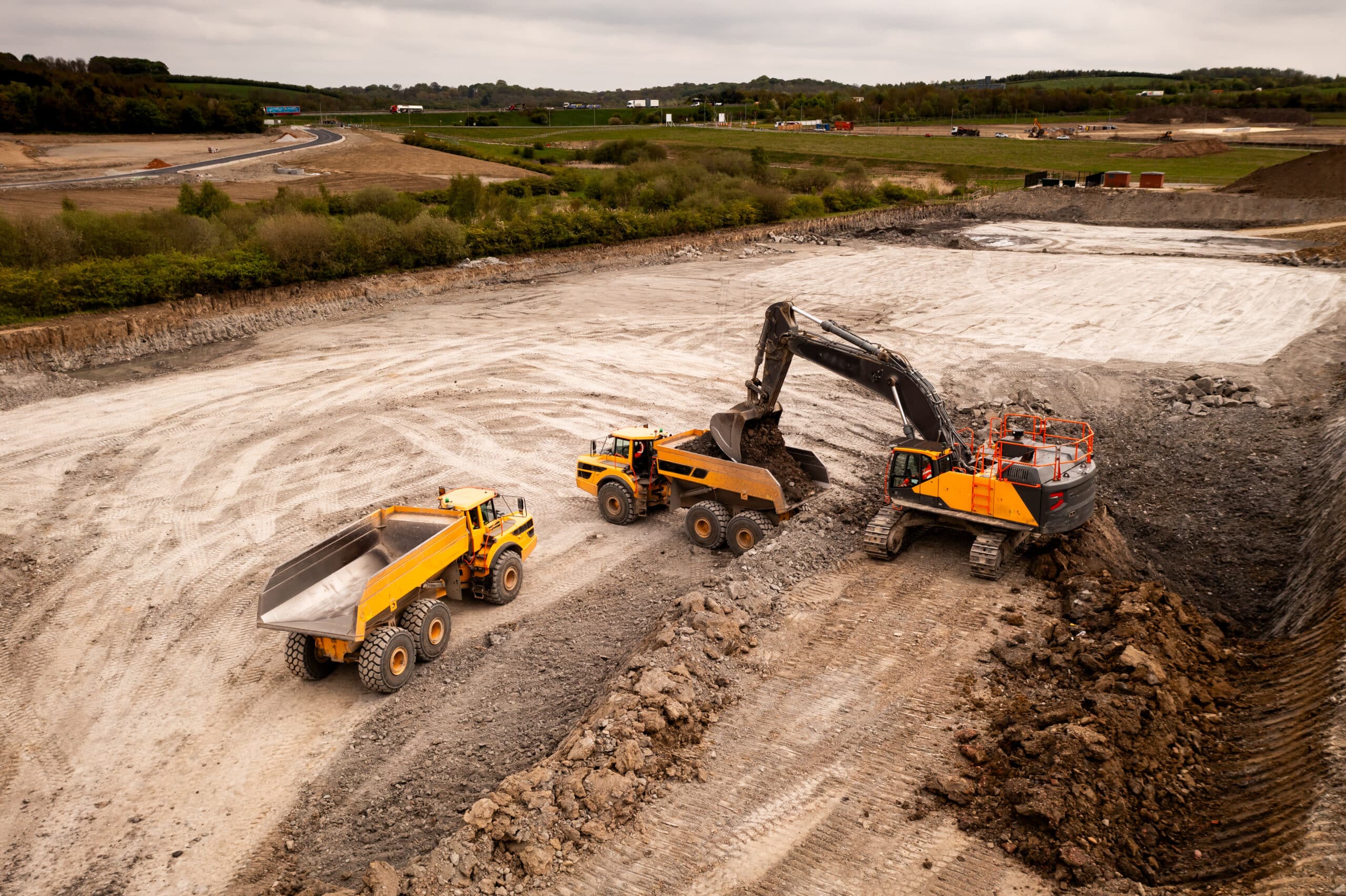According to the World Bank, by 2050, food production will need to increase by 60% to meet the demands of the global population, which is expected to reach nearly 10 billion people. Inherent in these figures is the immense opportunity for agribusiness investors. Significant agribusiness investment will be required to drive innovation, improve sustainability, and make the necessary enhancements to global food systems.
This article will examine the agribusiness investment landscape, explore key trends shaping this sector, and analyse the strategies and opportunities that are likely to shape its trajectory.
What is shaping agribusiness investment?
Industry consolidation
The agri-food industry has become increasingly concentrated in recent years. Upstream sectors such as fertilisers, agrochemicals, and seeds are particularly concentrated, with four firms controlling as much as 62% of the global agrochemical market and two firms controlling approximately 40% of the commercial seed market. Food retailing is similarly concentrated, with large supermarket chains dominating both developed and developing markets.
This naturally has significant implications for investors who need to carefully assess the risks and opportunities, including potential regulatory challenges. The Federal Trade Commission has actively challenged various agribusiness and agrifood transactions, notably litigating against the merger between Kroger and Albertsons and taking a keen interest in Koch Industries’ acquisition of the Iowa Fertiliser Co. The recent formation of the European Board on Agri-Food (EBAF) suggests that the EU is preparing to take a more proactive stance in evaluating mergers and acquisitions in this space in the future.
As larger agribusiness firms pursue mergers and acquisitions to enhance their market position and shore up supply chain risks, acquiring upstream and downstream partners has become commonplace. This vertical integration helps mitigate the risks associated with supply chain disruptions, which have become more prevalent due to global events, such as the ongoing war in Ukraine, while also acting as a hedge against global warming.
Shifting ESG sentiment
The global emphasis on Environmental, Social, and Governance (ESG) standards has reshaped agribusiness investment. More investors are looking to engage with companies that prioritise sustainability, whether through renewable energy use or responsible land and water management. This trend is being driven by supportive government policies that promote environmentally friendly practices and a growing awareness of the risks associated with climate change. In the European Union, the Farm to Fork strategy and the European Green Deal are prompting investors to consider more sustainable and inclusive approaches that focus on reducing environmental impact, enhancing food security, and supporting equitable growth throughout the food system.
At a boardroom level, ESG impact assessments have become standard practice as board members increasingly want to see how investments align with sustainability goals. Impact investing, sustainable intensification, and circular economic models are some of the more popular approaches that investors are adopting to align profitability with positive social and environmental impact. But addressing these intertwined challenges requires carefully balancing shareholder expectations with financial returns and long-term sustainability objectives.
However, the recent rise of anti ESG sentiment should not be ignored, as it is creating a more challenging landscape for agribusiness investors in other parts of the world. In these regions, investors have deprioritised ESG performance in favour of short-term financial gains and reducing regulatory burdens. For example, in parts of the United States and Brazil, ESG concerns have taken a back seat as policymakers and stakeholders emphasise economic growth and job creation over environmental and social considerations. This adds a layer of complexity for investors who are looking to strike the balance between profitability and sustainability.
Technology integration
Technological advancement is transforming the agribusiness sector, creating new opportunities to enhance productivity and efficiency. The adoption of data analytics, automation, precision farming techniques, and other technological innovations are revolutionising agricultural and agribusiness practices. By leveraging these advancements, investors have been able to unlock additional revenue and achieve significant efficiency gains, particularly in large-scale operations.
Looking ahead, technology is likely to have an even greater impact, with advancements in AI-driven crop management, autonomous machinery, and genetic engineering expected to further optimise resource use, increase yields, and reduce operational costs. The integration of digital tools will also enable smarter decision-making, positioning technology as a key driver of future growth for agribusinesses.
Shift from farmland as an asset class to agri-food as a business sector
Historically, farmland has been seen as a stable, low-risk investment, often used as a hedge against inflation or as a way to diversify portfolios. However, there has been a noticeable shift among investors from viewing farmland as an asset class to considering the broader agri-food value chain as an investment opportunity.
Investors are increasingly looking beyond farmland as they explore investments in food processing, logistics, and other value-added activities, hoping to capture a larger share of the value within the food system. This shift opens up opportunities in sectors such as agtech, food distribution, and food processing. In particular, cold storage logistics and reducing supply chain intermediaries have enabled savvy investors to capture value across the supply chain. This is particularly common in India and parts of the global south, where the introduction of government-backed cold storage facilities and integrated agro industrial parks have allowed agribusinesses to reduce the role of intermediaries, thereby improving margins and efficiency.
Boardroom sentiment
Market volatility has prompted investors to be more cautious, focusing on strategies that mitigate risks and protect their investments. Investors have had to be patient and willing to focus on long-term value creation rather than quick profits. Vertical integration has provided the best means to control costs and secure key resources, enabling agribusiness investors to better manage their supply chains, reduce uncertainties, and ensure consistent product quality. While for some this means purchasing suppliers and intermediaries outright, other organisations such as Nestlé and Coca-Cola have introduced supplier development programs. These programs are designed to improve the capacity of suppliers, enhance productivity, and ensure a consistent quality of raw materials, thereby benefiting both the agribusiness and the suppliers. In doing so, they not only provide financial returns but also help parent organisations achieve ESG targets.
A cautious mindset has also given rise to more rigorous technical and commercial due diligence. Board members are placing greater emphasis on more thorough and comprehensive research and due diligence on any acquisition or investment target. Demanding a more detailed insight into the target company’s competitive landscape, regulatory environment, and risk profile. Factors such as shifts in consumer preferences, technological advancements, and government policies have become increasingly significant as their impacts are felt more acutely.
Investing in human capital
In addition to acquiring agribusinesses, investors are also increasingly looking to build competencies within their leadership teams as a means of strengthening organisational resilience. By aligning human capital development with broader strategic objectives—such as entering new markets or adopting cutting-edge technologies—investors can ensure their leadership teams are sufficiently prepared to meet future challenges and seize available opportunities.
Investors are increasingly aware of the importance of human capital and how investments in education, training, and skills development can drive innovation and efficiency gains within their organisation. Whether they are being delivered via mentorship programs, digital learning platforms, or public-private partnerships. By investing in human capital, agribusiness investors can help create a skilled workforce capable of driving productivity, accelerating growth, and sustaining competitive advantage.
A strong commitment to human capital development has enabled progressive businesses to better prepare their organisation for large-scale, international, or cross-functional projects. However, it is worth noting that human capital development is a long-term process that requires sustained investment, ongoing support, and the development of infrastructure and resources. While agribusiness investors who are prepared to commit to these efforts for the long term will see meaningful results, those who fail to allocate sufficient resources to it will likely struggle to achieve their goals.
The future of agribusiness investing
Agribusiness investment presents significant opportunities for both financial returns and positive social impact. Although the future of agribusiness investment is promising, investors must be mindful of challenges and strike a balance between short-term profitability and long-term resilience. Investors should also be conscious that addressing these challenges may require new and innovative approaches, such as leveraging advanced technologies or embracing more circular principles.
Key trends relating to competition, technology, ESG, and investor sentiment are likely to have a significant impact on the industry’s future, and investors will need to adapt accordingly.
Vertical integration may help mitigate risks and capture value. While strategic partnerships with industry experts, technology providers, and government stakeholders ought to amplify impact and investment returns.
At Farrelly Mitchell, our agribusiness consultants offer comprehensive market analysis, risk assessment, and strategic guidance to help your organisation make the right agricultural investments. With our extensive industry knowledge and data-driven insights, we can help you identify and gauge high-growth opportunities that not only yield attractive returns but also align with your organisation’s long-term objectives and priorities. Contact us today and discover how our dedicated feasibility and due diligence teams can quickly and discreetly assess all aspects of your next investment opportunity.














